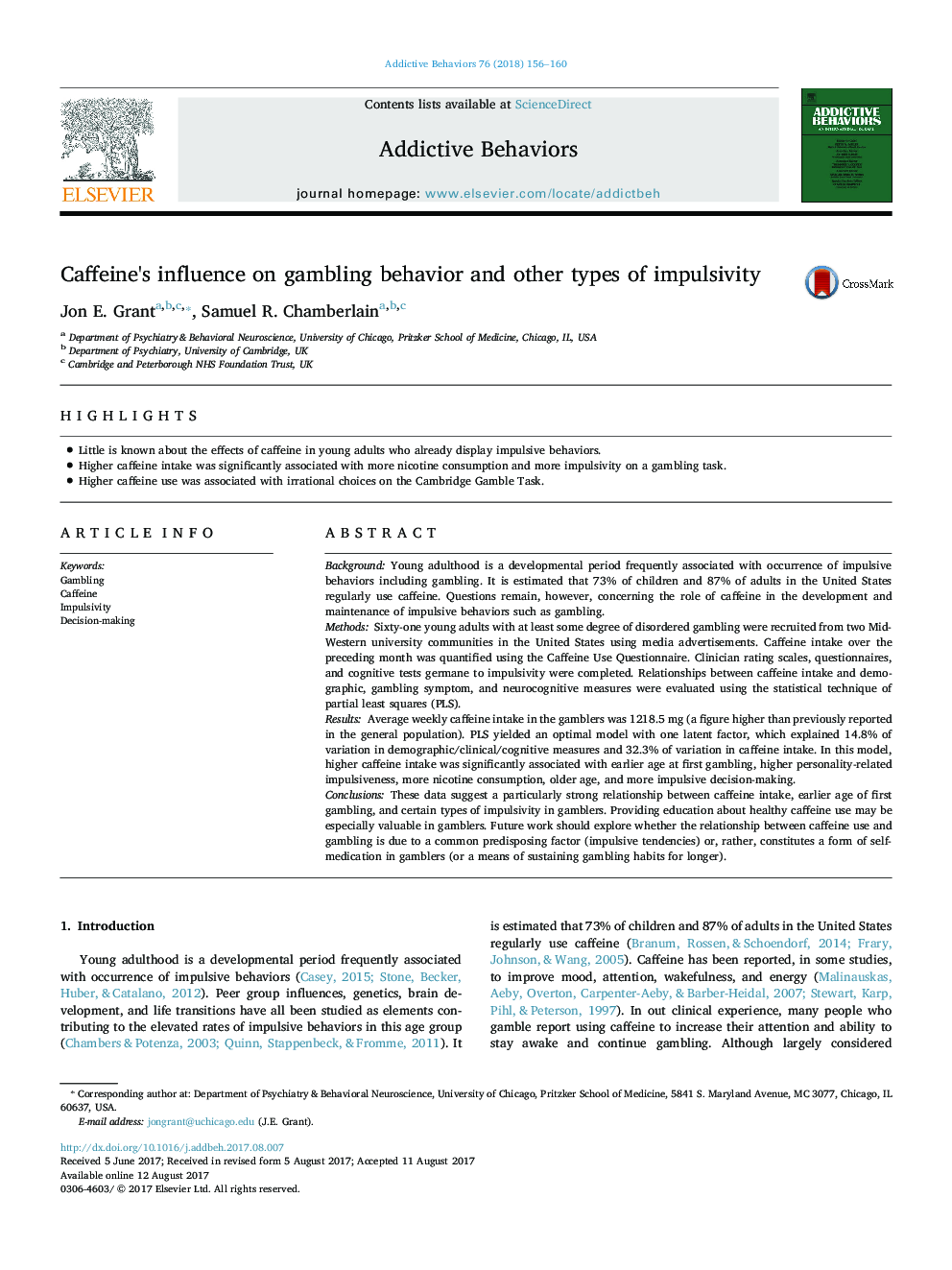| کد مقاله | کد نشریه | سال انتشار | مقاله انگلیسی | نسخه تمام متن |
|---|---|---|---|---|
| 5037620 | 1472495 | 2018 | 5 صفحه PDF | دانلود رایگان |
- Little is known about the effects of caffeine in young adults who already display impulsive behaviors.
- Higher caffeine intake was significantly associated with more nicotine consumption and more impulsivity on a gambling task.
- Higher caffeine use was associated with irrational choices on the Cambridge Gamble Task.
BackgroundYoung adulthood is a developmental period frequently associated with occurrence of impulsive behaviors including gambling. It is estimated that 73% of children and 87% of adults in the United States regularly use caffeine. Questions remain, however, concerning the role of caffeine in the development and maintenance of impulsive behaviors such as gambling.MethodsSixty-one young adults with at least some degree of disordered gambling were recruited from two Mid-Western university communities in the United States using media advertisements. Caffeine intake over the preceding month was quantified using the Caffeine Use Questionnaire. Clinician rating scales, questionnaires, and cognitive tests germane to impulsivity were completed. Relationships between caffeine intake and demographic, gambling symptom, and neurocognitive measures were evaluated using the statistical technique of partial least squares (PLS).ResultsAverage weekly caffeine intake in the gamblers was 1218.5Â mg (a figure higher than previously reported in the general population). PLS yielded an optimal model with one latent factor, which explained 14.8% of variation in demographic/clinical/cognitive measures and 32.3% of variation in caffeine intake. In this model, higher caffeine intake was significantly associated with earlier age at first gambling, higher personality-related impulsiveness, more nicotine consumption, older age, and more impulsive decision-making.ConclusionsThese data suggest a particularly strong relationship between caffeine intake, earlier age of first gambling, and certain types of impulsivity in gamblers. Providing education about healthy caffeine use may be especially valuable in gamblers. Future work should explore whether the relationship between caffeine use and gambling is due to a common predisposing factor (impulsive tendencies) or, rather, constitutes a form of self-medication in gamblers (or a means of sustaining gambling habits for longer).
Journal: Addictive Behaviors - Volume 76, January 2018, Pages 156-160
